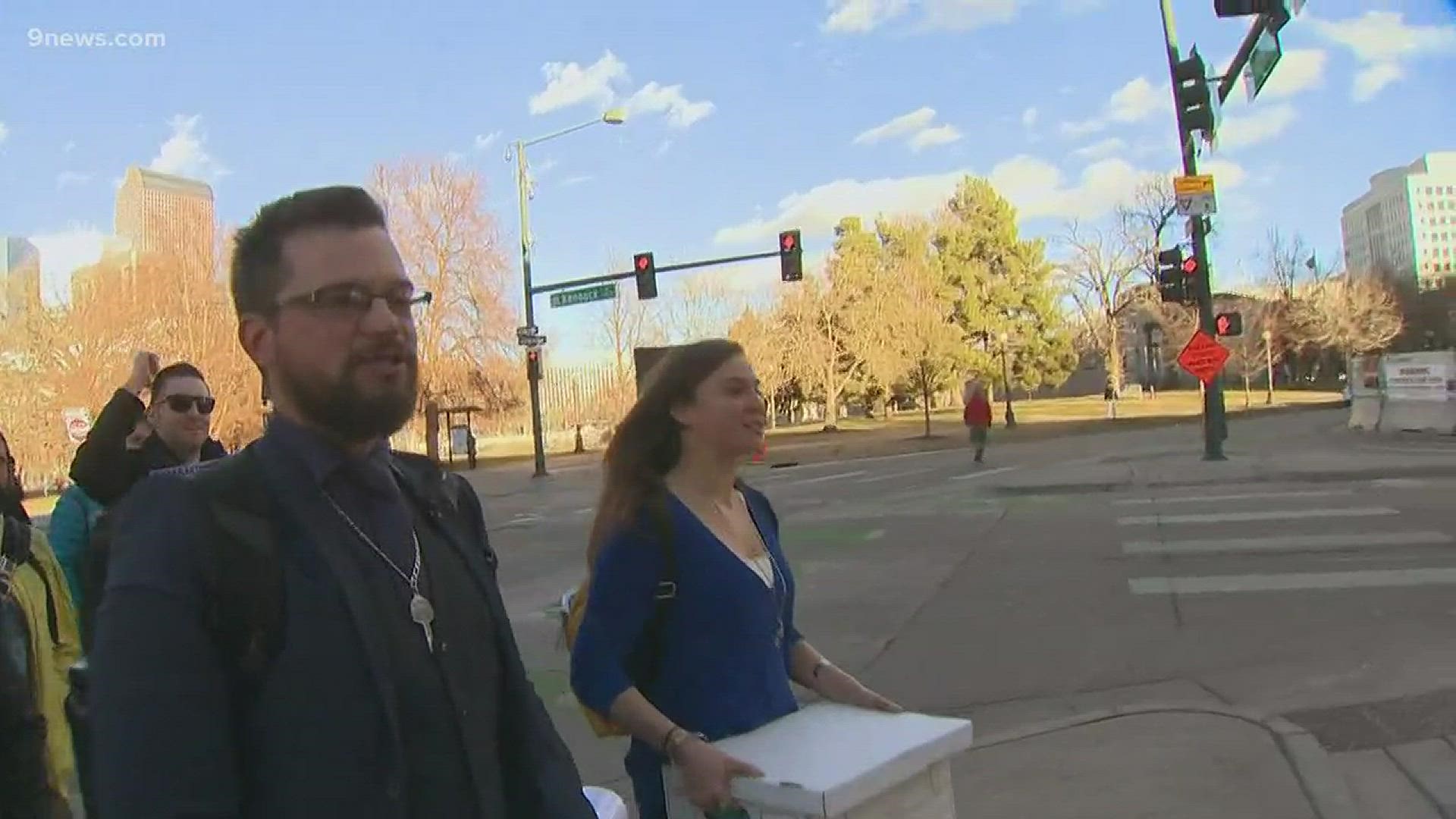The campaign to decriminalize psychedelic mushrooms in Denver said it has more than enough signatures to make the May municipal ballot and will turn them into the elections office following a rally outside the Capitol Monday afternoon.
Kevin Matthews, the campaign director for Denver for Psilocybin, said the group has gathered more than 8,000 signatures. The elections office has 25 days to verify they have collected the 4,729 valid signatures needed to make the May 2019 municipal ballot.
“This is a chance for Denver and Colorado to be an example for the rest of the country,” Matthews said.
He said an important distinction for voters to make is the fact the measure would decriminalize magic mushrooms rather than legalize them. The language in the measure is based off a 2007 initiative to decriminalize marijuana possession in Denver – something that was a precursor to the 2012 legalization of recreational cannabis use and distribution -- and a first-of-its-kind in the country.
“We’re not talking about a regulatory framework, we’re not talking about a recreational framework at all,” Matthews said.
The Denver for Psilocybin campaign touts what it said are the medical benefits of magic mushrooms, and has cited studies saying the drug has been known to help people experiencing a decline in mental health.
Matthews, a father of a 4-year-old, said he personally has benefited from the drug to help with depression.
“Mushrooms have really given me a new lease, a new outlook, a new perception on life,” Matthews said. “It’s made the world a better place for me. It’s not something I use very often, but the experiences I have had have been profound and have radically changed me.”
He previously told 9NEWS that more than 100 volunteers were involved in gathering signatures. The next step, Matthews said, is campaigning and essentially going to door-to-door, as well as speaking with community groups.
The ordinance would make the use and possession of psilocybin by people over 21 years old the city of Denver’s “lowest law enforcement priority” and prohibit the city from prosecuting cases related to this.
It would also create a Psilocybin Mushroom Policy Review Panel to assess the potential impacts of the ordinance. This, according to the language on the initiative, would include two Denver City Council members.
Right now, the FDA classifies psychedelic mushrooms as a Schedule 1 drug, which is reserved for substances it says has no medicinal value. That’s the same category as heroin and LSD.
Last year, Johns Hopkins University published a study recommending that psilocybin be reclassified to a schedule IV drug on par with prescription sleep aids.
Jeff Hunt, the vice president of Public Policy at Colorado Christian University, told 9NEWS on Monday that the long-term effects of psychedelic mushrooms remains to be seen.
"There’s a lot of science that needs to follow up the research here," Hunt said. "The fact is we just don’t know a lot about these psychedelic mushrooms and the impact it’s going to have on people’s brains just like we don’t know the full impact of marijuana."
Hunt went on to say that these drugs aren't natural and shouldn't be treated as such.
"This is a psychedelic drug. This is not some supplement that you take that’s going to have some vitamins, nutritional value that adds to your life," Hunt said. "This has a psychedelic effect to it that’s going to affect how you look at the world and how you interact with the world."
A 2020 initiative in Oregon would both decriminalize possession of psilocybin and allow the mushrooms to be grown legally with a license – something that Matthews said is the next step for his campaign should their current effort become law.
“No one should go to jail for possessing a compound that not only grows naturally but also has proven demonstrated clinical benefits,” Matthews said.
SUGGESTED VIDEOS | Local stories from 9NEWS

